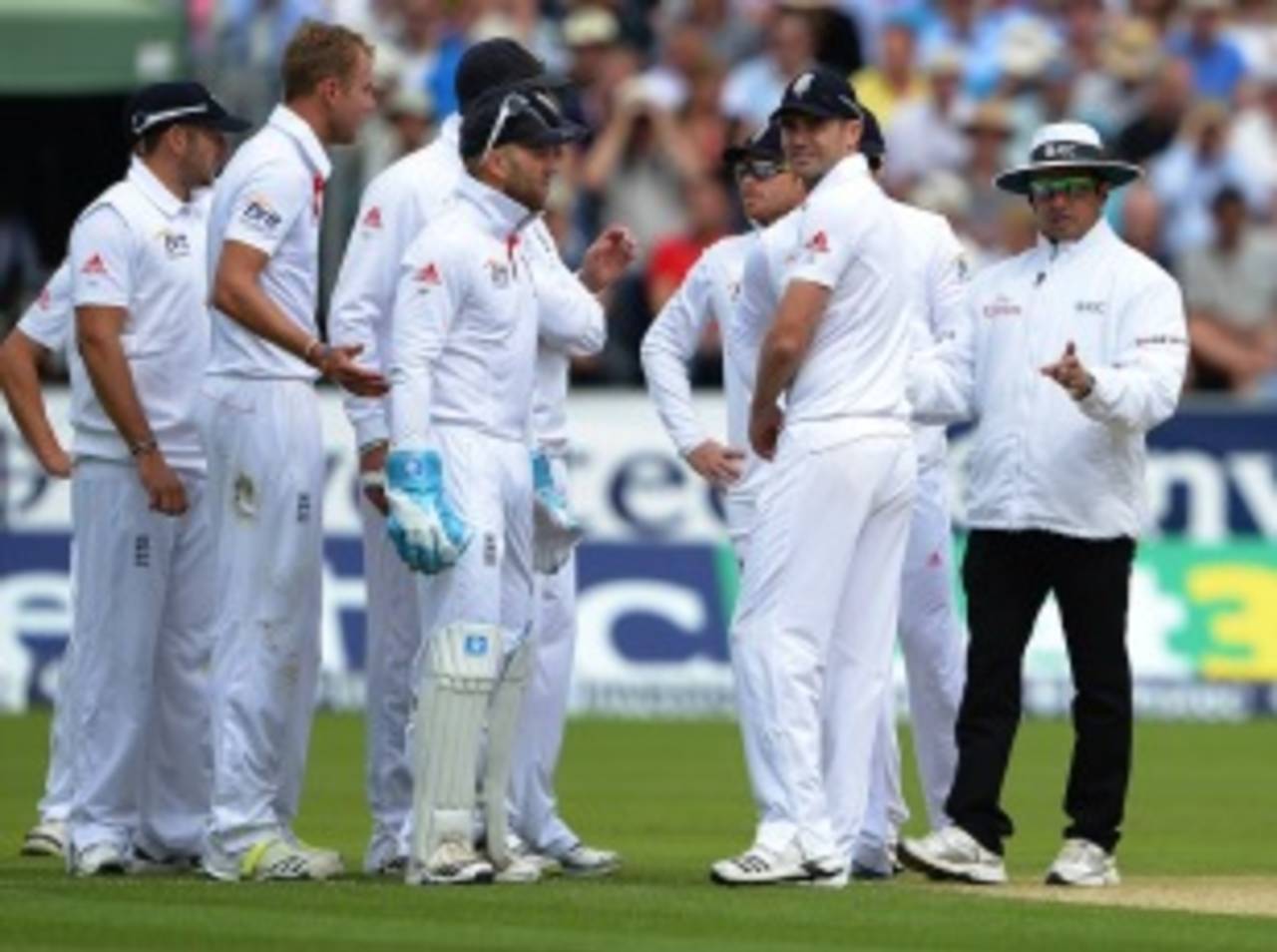The ICC decided against allowing teams to keep referrals that were denied on an umpire's call out of fear the game would be slowed down too much, even as it approved the introduction of a DRS "top-up" after 80 overs, the Cricket Australia chief executive James Sutherland has revealed. As he discussed the fall-out from the Nine Network's
decision not to employ Hot Spot during this summer's Ashes series, Sutherland said the equity of umpire's call verdicts had been debated "long and hard" by the chief executive's committee at the most recent ICC meeting.
While Hot Spot's effectiveness and use has been a point of contention since the Ashes Tests in England earlier this year, the loss of referrals to tight decisions that have stayed with the umpire's original verdict created a similar level of discussion among players, spectators and administrators. Sutherland said it was still possible that such reviews would be handed back to the players, but admitted there was hesitance based on the possibility that the number of reviews may increase substantially.
"We debated umpire's call long and hard, and what was eventually decided was that they wanted to leave that pending for a little while," Sutherland said. "We agreed to the top-up after 80 overs. That will come back on the agenda, and it's not a bad idea. The ICC assessment is that if you don't lose a review for umpire's call, you will increase the number of referrals by at least double, and that will change the game. Everyone likes the idea of the referral being really valuable, and you need to think really carefully about using it, because it all comes back to the howler."
Sutherland denied that CA needed to step in to the stand-off between Nine and Hot Spot's ringmaster Warren Brennan, and rejected the notion that Australian cricket's governing body did not provide financial support in the way of other nations. He said that CA's rights fees factored in the broadcast costs of Nine, whereas other nations paid for production in-house and then charged at higher odds for the rights themselves. "Indirectly we're paying for it," he said.
"The first use of Hot Spot was all about broadcast enhancement. And in Australia that's been something Nine have sponsored and dealt with and had discussions with Warren Brennan and his company in the past, they've had arrangements that they've used successfully. We've never been involved with those discussions and never needed to be. That continues to be a commercial negotiation between those two.
"I've spoken with [Nine chief] David Gyngell about it, I know and understand from Nine's viewpoint they're not walking away from that and see it as an ongoing discussion. They certainly have concerns about Hot Spot in various ways, both commercially and in an operational capacity, and it's something they will work through. They've been able to sort it out in the past, so let's see if they can sort it out. This is still six weeks out from the series, it's not a unique circumstance where Nine and Hot Spot have had discussions about broadcast enhancements."
Debates about DRS have ranged from whether the system should be used at all to which technology is most reliable and which system makes the best use of it. Sutherland saw a tension around the issue of how much accuracy should be demanded from technology that will always have a certain margin of error, no matter how small.
"The biggest problem is what is your satisfaction level about imperfection," he said. "We can all say 'we know it's not perfect', but someone's acceptance of imperfect might be here and another's is 99.9%. That area of grey in between those two extremes is where this system gets into trouble. Not saying this is true, but as an example, do you accept the fact that if 80% of the time a nick will show on Hot Spot, but you know that 20% of the time it won't - do you accept that or not?"
